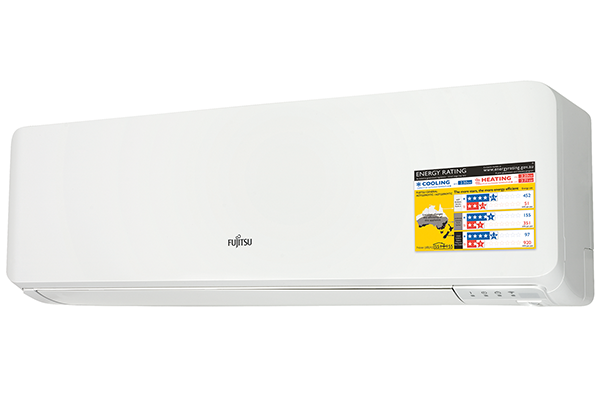
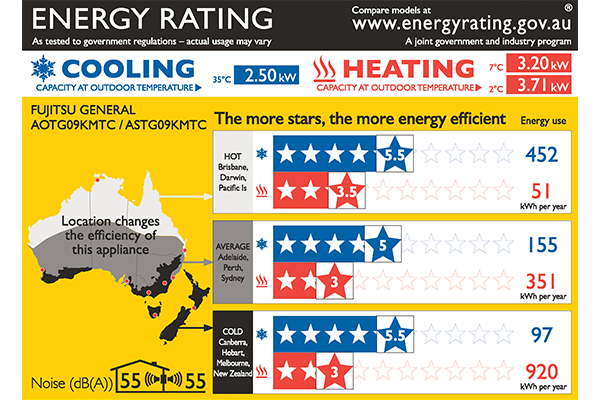
NEW Zoned Energy Rating Label for Fujitsu air conditioners
Fujitsu air conditioners for sale in Australia and New Zealand are transitioning to displaying the NEW Zoned Energy Rating Label (ZERL) The new label provides a seasonal efficiency rating for three distinct climate zones across Australia and New Zealand
- HOT, AVERAGE and COLD.
OLD vs NEW Zoned Energy Rating Label for Fujitsu air conditioners
Understanding the difference between the old Energy Rating Label (ERL) and the NEW Zoned Energy Rating Label (ZERL).
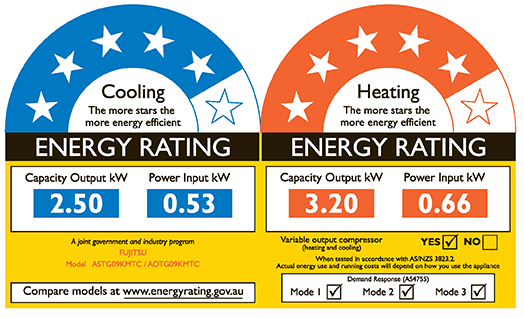
OLD Energy Rating Label (ERL)
The star rating on the old label measured how much cooling or heating output was achieved per unit of power. It related to the efficiency of the air conditioner at a particular temperature, but did not take into account consumer usage patterns in different locations of Australia to determine typical electricity use.
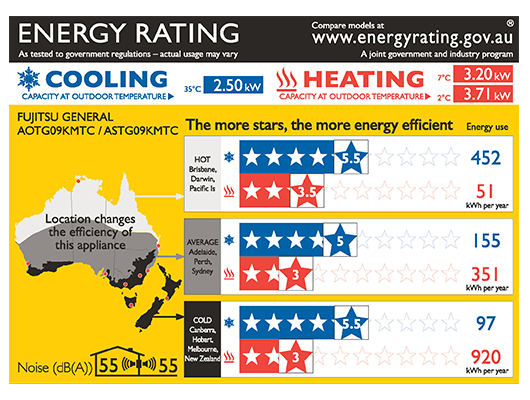
NEW Zoned Energy Rating Label (ZERL)
The star ratings on the new label reflect how the air conditioner will perform over a range of temperatures and allows an annual electricity figure to be calculated (these are the blue and red ‘kWh per year’ figures on the ZERL).
Key Features

Performance Calculations

How to read the NEW Zoned Energy Rating Label for Fujitsu air conditioners
For an easy reference guide, click the image below.
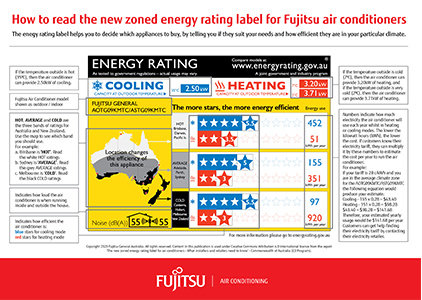
How to use the NEW Zoned Energy Rating Label for Fujitsu air conditioners
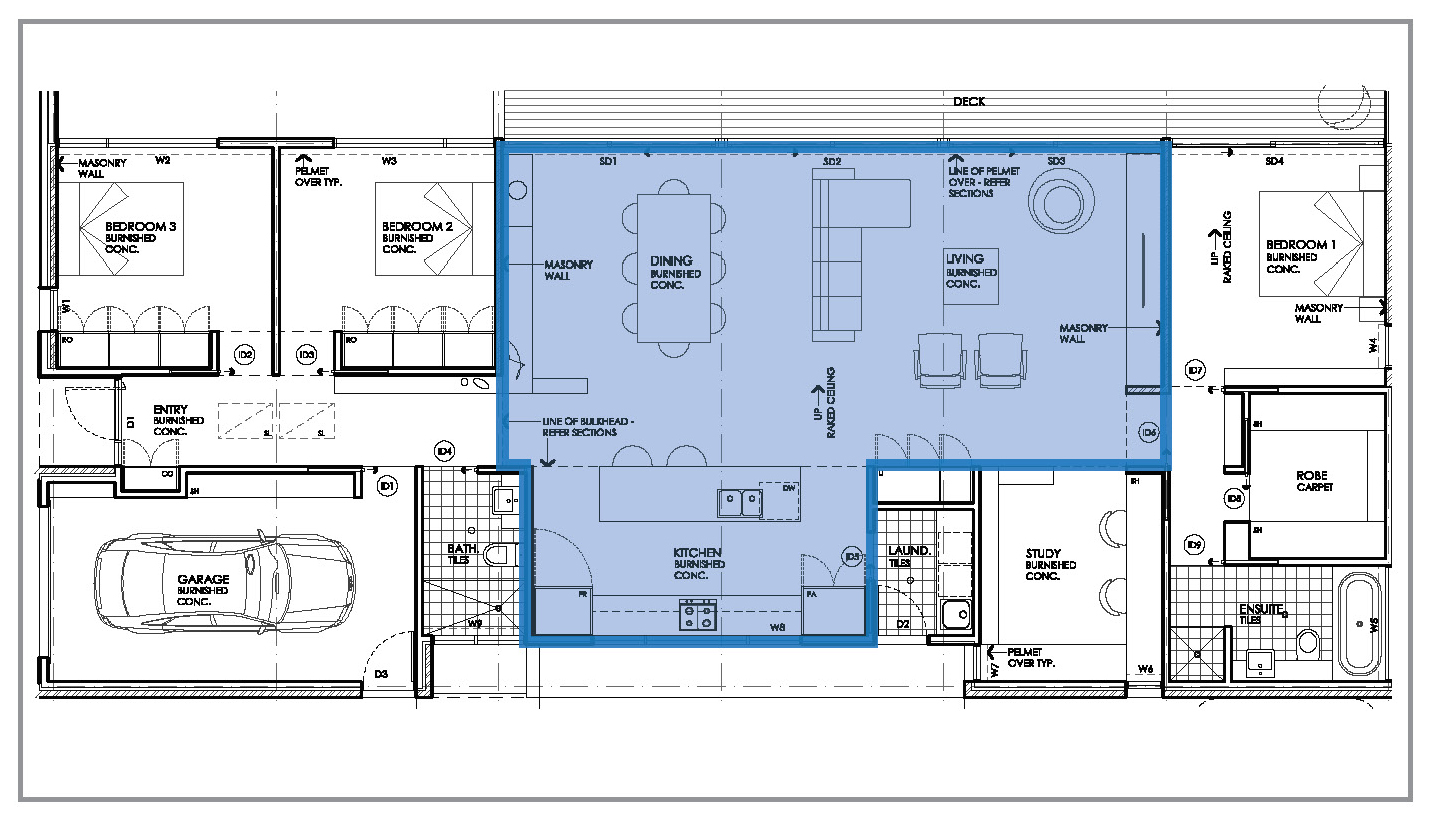
Step 1
Find out what size air conditioner you need for your space. A family has a 3 bedroom home and would like to purchase an air conditioning unit for their open plan living area. They sought advice online and have been advised by their retailer / installer that they would need a 7kW unit.
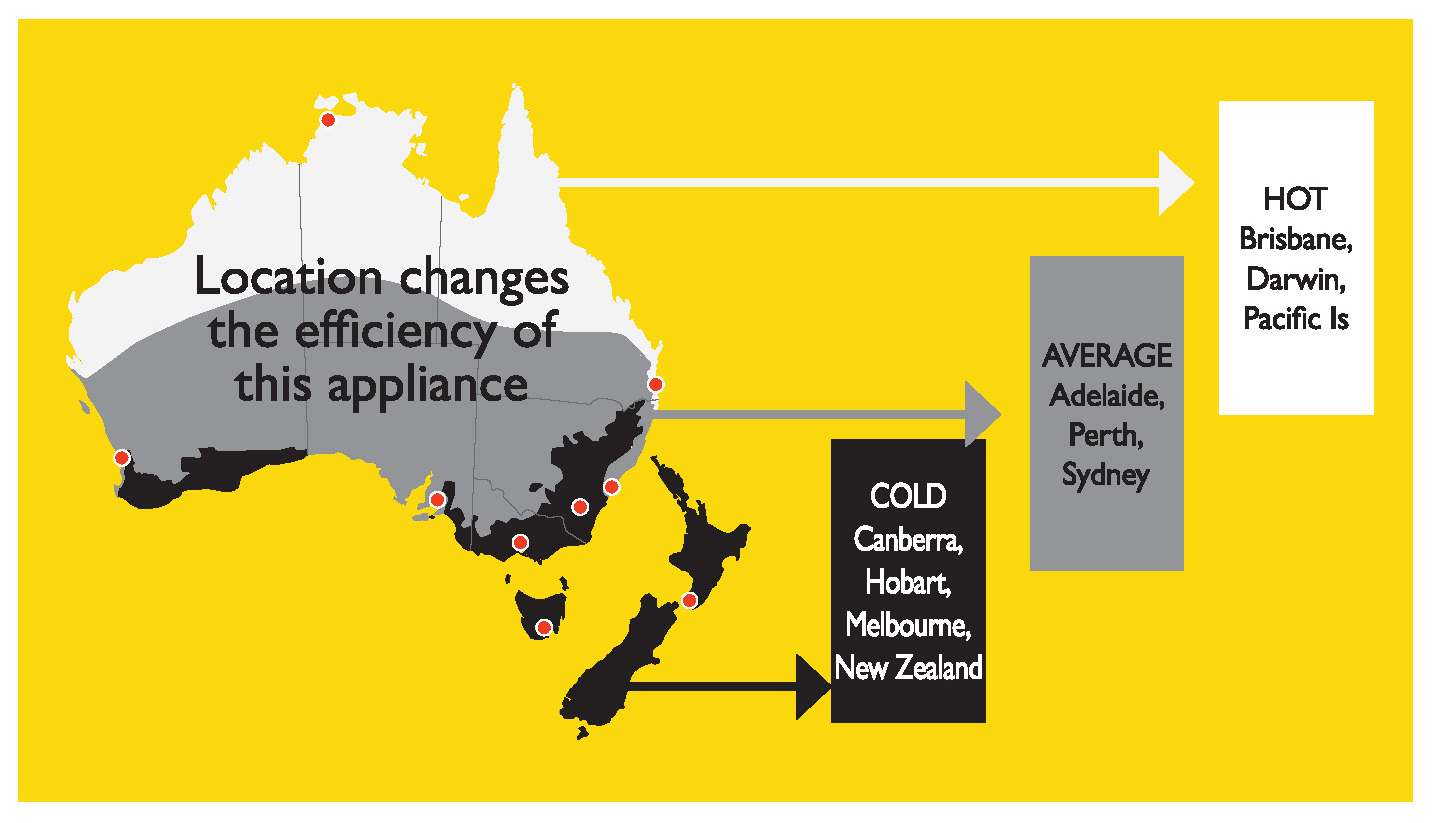
Step 2
Figure out what zone you're in. The family live in Perth, which is in the ‘average’ zone, so they refer to the star ratings and energy use in the grey shaded ‘average’ zone to review the air conditioner’s performance.
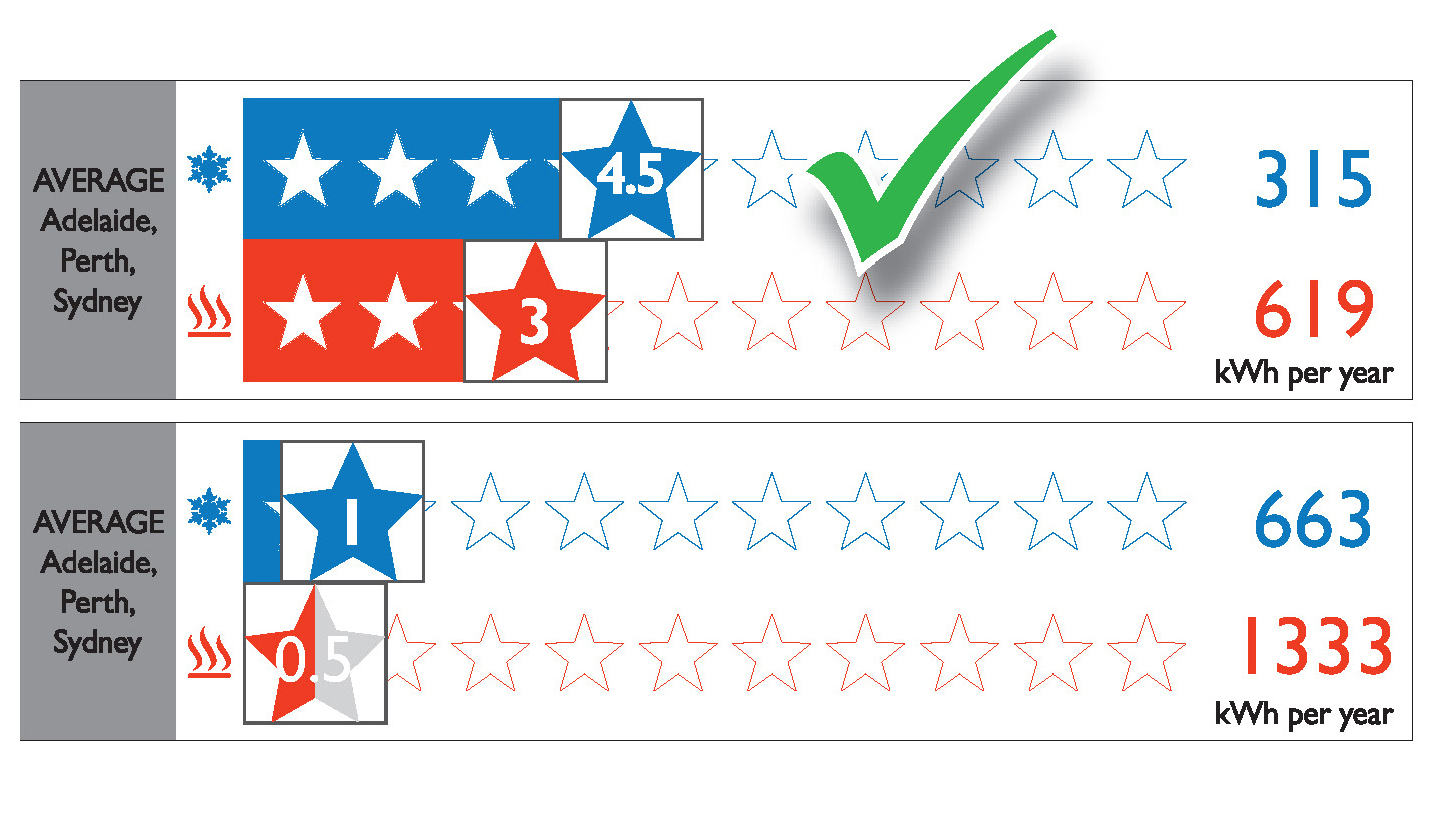
Step 3
Compare star ratings on air conditioner performance in your zone. The family compares two air conditioning units based on their energy efficient star ratings and energy use. They decide to purchase the top unit as it is more energy efficient and will consume less energy ultimately making it more efficient.
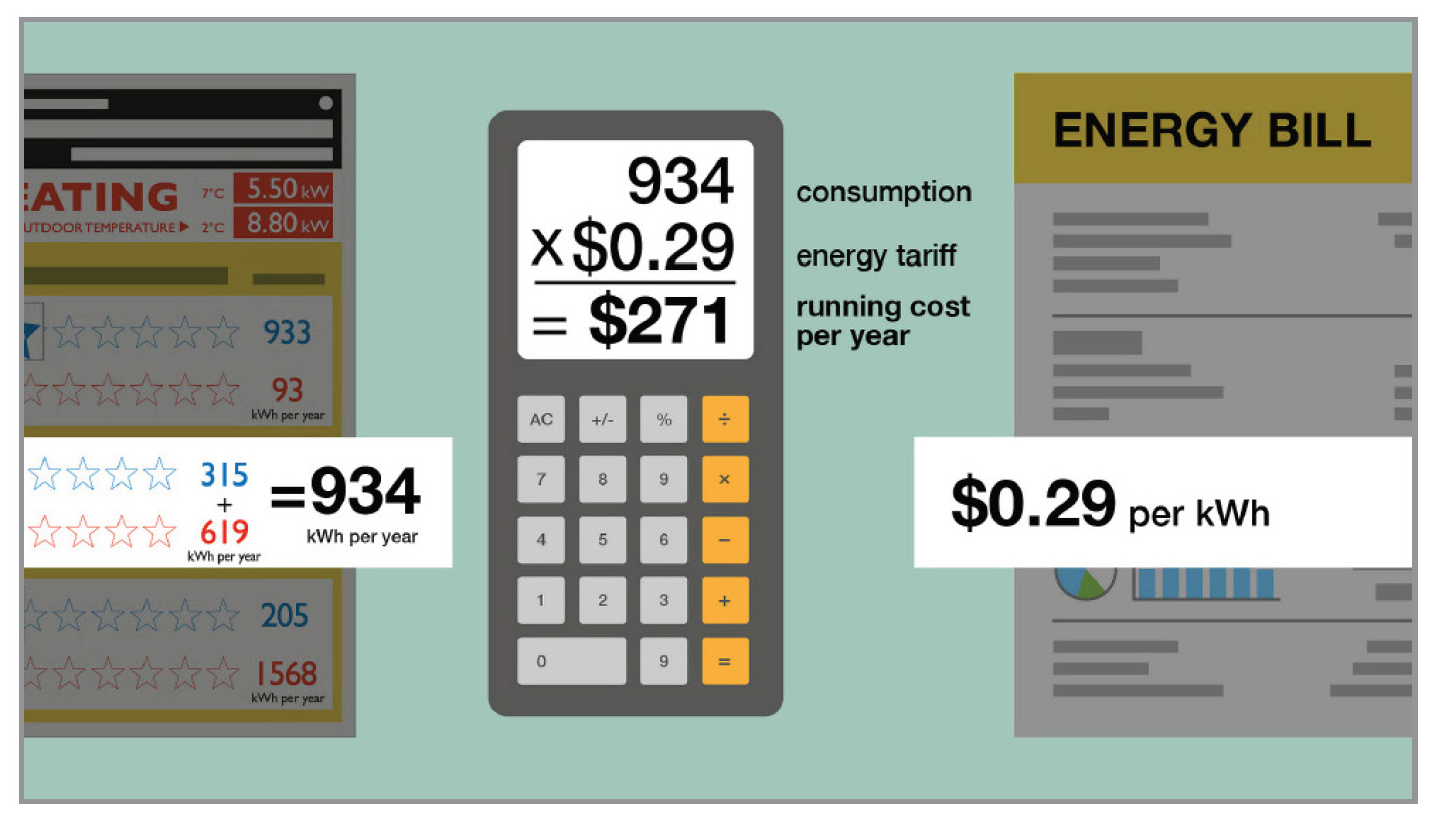
Step 4
Work out how much it costs to run per year. The family determine that the cost to run this air conditioner per year would be $271 based on an electricity tariff of $0.29 kW per hour.
Common Questions
Why the change?
To provide consumers with more information about expected energy use for Fujitsu air conditioners, based on where they live. The
new label will assist consumers in evaluating the energy use of various air conditioning products in order to help them save money
on their energy bills.
The new labels provide estimated performance information about likely energy use by the air conditioner over the course of the year.
Labels on ducted systems are voluntary, so not all products will have one.
Star Rating
Are the stars the same? Can I compare the stars on a product with the old label and another product with the new label?
No, they are not the same. Due to the different methods of calculating the star ratings, you should not compare the star rating on
the old label versus the new Zoned Energy Rating Labels.
The star ratings on the old label measured how much cooling or heating output was achieved per unit of power. It related to the efficiency of the air conditioner at a particular temperature, but did not take into account consumer usage patterns or climate to determine typical electricity use.
How loud is that noise level on the label?
For comparison, here are some common sound power levels
(in decibles)
30dBA: typical noise in a quiet home
50dBA: inside of a quiet car while driving
60dBA: having a typical conversation
75dBA: an operating vacuum cleaner
The noise levels on the label are measured with the air conditioner running at full capacity in cooling mode. For much of the time an air conditioner is running, its noise level will be lower than the level indicated on the label.
Where can I get more information?
The energy rating website has more information on the new zoned energy rating label, energy performance and other useful efficiency information: energyrating.gov.au


